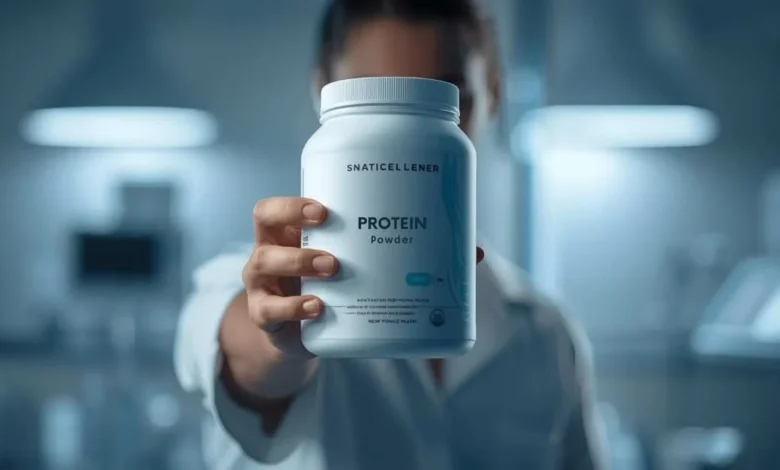Protein Powder Lead: Understanding Contamination Risks and How to Protect Your Health

Protein powders are a staple in many people’s nutritional plans, especially for those who are focused on fitness, muscle recovery, and maintaining an active lifestyle. They are considered a convenient and effective way to supplement protein intake. However, a growing body of research has uncovered an alarming and often overlooked issue: protein powder lead contamination. This toxic metal, when found in protein powders, poses severe health risks, especially with long-term consumption. Despite being marketed as a health-enhancing supplement, some protein powders are unknowingly contributing to lead poisoning and other related health issues.
This article aims to provide a thorough investigation into the presence of protein powder lead, its sources, the dangers it presents to your health, and strategies to minimize exposure. We will also look at regulatory gaps, the steps consumers can take to protect themselves, and how you can safely incorporate protein powders into your diet without compromising your well-being.
1. The Growing Dependence on Protein Powders in Modern Diets
Over the years, protein powder usage has become widespread, with millions of consumers turning to it to meet their daily protein needs. Protein is crucial for muscle repair, immune function, bone health, and tissue regeneration. While whole foods such as eggs, chicken, fish, and legumes provide the best sources of protein, protein powders serve as an easy alternative for people with busy lifestyles, athletes, bodybuilders, and those with dietary restrictions.
The global protein supplement market is expected to continue growing, fueled by increasing awareness of fitness and healthy living. Products range from whey protein to vegan alternatives like pea, hemp, and rice proteins. These powders, when used responsibly, can help meet protein requirements quickly and effectively. However, the rising concerns about the presence of protein powder lead are casting a shadow over the supplement industry. Let’s dive deeper into the causes and risks of lead contamination in these widely consumed products.
2. What is Lead Contamination, and How Does It Affect Protein Powders?
Lead is a heavy metal that is toxic to human health, even in trace amounts. Chronic exposure to protein powder lead can cause a wide range of health issues, especially neurological, renal, and cardiovascular problems. The root cause of protein powder lead contamination is often traced to environmental pollution. Lead enters the food chain through contaminated soil, water, or air. This is especially relevant for agricultural products, as plants absorb metals directly from the soil and water during their growth cycle.
For protein powders, the main culprits are the raw ingredients themselves—whether they’re plant-based or animal-derived. Let’s look at the two primary sources of contamination:
a. Plant-Based Protein Powders: The Leading Culprits of Lead Contamination
Plant-based proteins, such as rice, hemp, and pea proteins, are particularly vulnerable to contamination because plants tend to absorb metals directly from the environment. Lead, along with other heavy metals like cadmium and arsenic, can enter the plants through the soil they are grown in or via polluted irrigation water.
- Rice Protein: Rice is notorious for absorbing lead due to its growing conditions in waterlogged fields. The unique cultivation method of rice increases the uptake of metals from the environment, which can later appear in rice protein powders.
- Pea Protein: Similarly, pea plants absorb metals from the soil, and heavy metal concentrations have been found in certain pea protein powders.
- Hemp and Other Plant Proteins: Hemp, a plant that is often hailed for its sustainability, also shows a tendency to absorb toxins like lead. If grown in polluted soil, hemp protein can become a source of heavy metal contamination.
b. Animal-Based Proteins: Less Likely but Still Vulnerable to Lead Contamination
While animal-based proteins like whey are less prone to heavy metal contamination compared to plant-based options, they are not entirely free from risks. If livestock are raised in contaminated environments or feed on food exposed to pollutants, traces of lead may make their way into the final product. However, animal proteins tend to have lower levels of contamination due to the animals’ ability to metabolize and eliminate toxins through natural processes.
3. The Health Risks of Protein Powder Lead Contamination
Exposure to protein powder lead over time can have serious consequences for health. Lead is known for its neurotoxic effects and its ability to accumulate in the body over time. Here’s a deeper look at how lead exposure impacts health:
a. Neurological Damage
Lead is particularly harmful to the nervous system. In children, even small amounts of lead exposure can result in developmental delays, lower IQ, and learning disabilities. Adults may suffer from memory loss, cognitive decline, and mood disturbances. Prolonged exposure to protein powder lead can lead to neurodegenerative diseases such as dementia and other cognitive impairments.
b. Kidney and Organ Damage
Lead is also highly toxic to the kidneys. Long-term exposure can lead to kidney dysfunction and may eventually cause kidney failure. The kidneys filter out toxins from the blood, but when exposed to too much lead, their ability to perform this task can be severely impaired.
c. Reproductive and Developmental Risks
Lead exposure can affect both male and female reproductive health. In men, lead toxicity can reduce sperm count and motility, while women may experience fertility issues, menstrual problems, and complications during pregnancy, such as preterm birth or miscarriage.
d. Cardiovascular Concerns
Chronic lead exposure has been associated with hypertension (high blood pressure) and increased risks of heart disease and stroke. Lead contributes to the stiffening of blood vessels, reducing blood flow and increasing the risk of cardiovascular events.
4. Key Research Findings on Protein Powder Lead Levels
Multiple investigations have revealed alarming levels of protein powder lead in popular protein powder products. In 2025, a landmark study by Consumer Reports tested 23 protein powders, uncovering high levels of heavy metals, including lead. Some of the findings were particularly troubling:
| Brand/Type | Lead Level per Serving (Micrograms) | FDA Safe Limit (Micrograms) | Exceeds Safe Limit? |
|---|---|---|---|
| Naked Nutrition (Vegan Mass Gainer) | 7.7 | 0.5 | Yes |
| Vega One All-in-One Shake | 6.3 | 0.5 | Yes |
| Orgain Organic Protein | 2.1 | 0.5 | Yes |
| Garden of Life Raw Protein | 4.4 | 0.5 | Yes |
| Body Fortress Whey Protein | 1.2 | 0.5 | Yes |
| Vital Proteins Collagen Peptides | 0.3 | 0.5 | No |
The results showed that many plant-based products, particularly those containing rice, pea, and hemp proteins, had significantly elevated levels of lead, far exceeding the safe threshold of 0.5 micrograms per serving set by the FDA. These findings underscore the potential dangers of protein powder lead in everyday dietary supplements.
5. Why Plant-Based Protein Powders Are More Vulnerable to Lead Contamination
Plant-based protein powders are significantly more prone to protein powder lead contamination than their animal-based counterparts. This is due to the biological nature of plants and their ability to absorb minerals directly from the environment. Certain plants, especially rice, hemp, and peas, have higher absorption rates for toxic metals, including lead. This makes them a common source of contamination in protein supplements.
Factors Contributing to Plant-Based Protein Contamination:
- Soil Contamination: Heavy metals like lead are naturally present in the earth’s crust, but pollution from industrial activities, mining, and improper agricultural practices can increase their concentration in the soil, which is then absorbed by plants.
- Water Pollution: Irrigation with contaminated water further exacerbates the issue. Polluted water used to grow crops like rice and hemp often contains high levels of lead, which then transfers to the plants.
6. Consumer Protection: How to Choose Safe Protein Powders
Given the risks of protein powder lead contamination, consumers should take steps to select safe and clean protein powder products. Here are several key strategies:
a. Look for Third-Party Testing
The best way to ensure that your protein powder is free from harmful levels of lead is to choose products that undergo independent third-party testing. Reliable testing labs will check for the presence of heavy metals and provide unbiased results.
b. Check for Certifications
Opt for products with certifications such as NSF Certified for Sport or USP Verified. These certifications demonstrate that the protein powder has undergone rigorous quality control and testing.
c. Avoid Products with Prop 65 Warning
If you’re purchasing protein powder in California, be wary of products with a Prop 65 warning, which indicates the presence of chemicals known to cause cancer or reproductive harm, including lead. These products are more likely to contain unsafe levels of protein powder lead.
d. Choose Animal-Based Proteins When Possible
Animal-based proteins like whey are generally less prone to contamination. If you are concerned about heavy metals, consider switching to whey protein or other animal-derived protein supplements.
e. Research the Brand and Manufacturer
Choose reputable brands that provide transparency in their testing procedures and product quality. Research customer reviews and ensure that the brand has a history of meeting regulatory standards.
7. Conclusion: Reducing Exposure to Protein Powder Lead and Promoting Health
The discovery of protein powder lead in many popular protein supplements underscores the importance of careful product selection. While protein powders can be a convenient way to meet nutritional needs, it is crucial to prioritize products that have been thoroughly tested for heavy metals. By choosing trusted brands, avoiding contaminated ingredients, and understanding the potential risks of protein powder lead, consumers can safeguard their health while continuing to benefit from these popular dietary supplements.
The growing awareness of protein powder lead contamination calls for greater industry oversight and more stringent testing regulations. Until such reforms take place, it is essential for consumers to remain vigilant, make informed choices, and use protein powders safely and responsibly.




